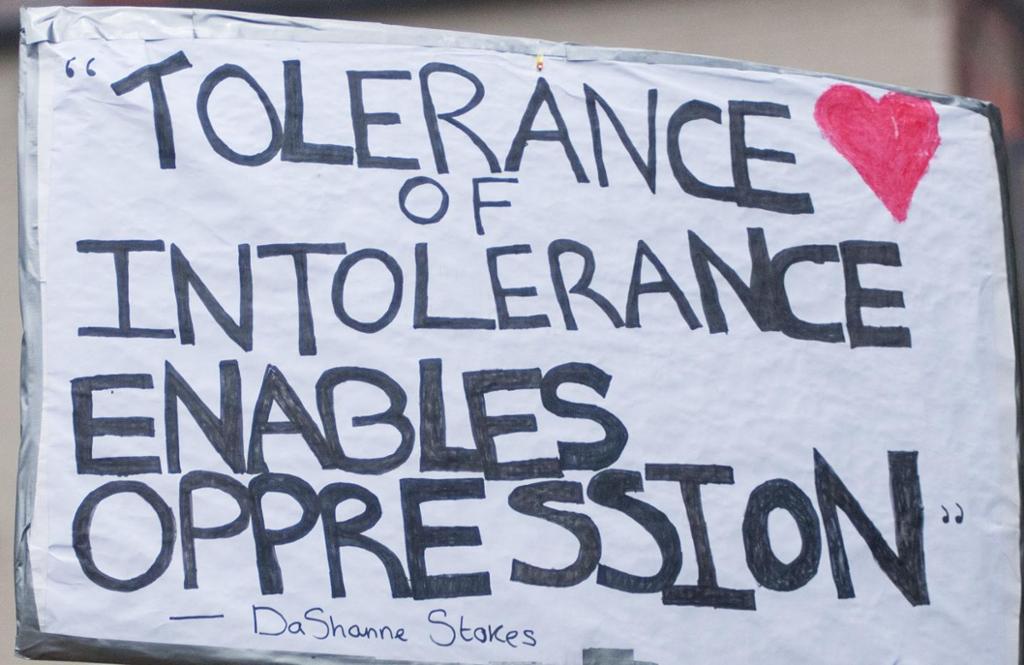Structural Racism

Tragic events like the killing of George Floyd and Breonna Taylor, protestors clashing in the streets, and the many instances of 'Karens' accusing innocent black people of crimes, have in recent years reinforced an impression of the United States as a racist country. However, many people would claim that the main problem for the United States, together with many other Western countries, is not the blatant racism that we read about in the newspapers and watch on television. The real problem is structural racism - also called systemic racism - because this is much more difficult to get rid of.
Structural racism is often very difficult to detect and mostly invisible to anyone who is not a target. It is a form of racism that is embedded in the normal practices of a society or an organisation, and refers to how ideas of white superiority are incorporated and captured into everyday thinking at a system level. In such a society, some cultures are unconsciously celebrated and rewarded, while others are silenced and minimised. If the perception that some of our people and cultures have less value becomes set in people's minds, their actions will unconsciously mirror their perceptions.
Also, there is often a consensus within the dominant group that the rules of the game are the same for everyone. There is a refusal to acknowledge that racism is an obstacle of importance for ethnic minorities. In the words of Harvard professor Harvey Mansfield, this results in a society that is "so little racist that no one can respectably advocate racism, yet so much racist that every part of it is soaked with racism. This leaves us with the paradox of a racist society without racists." The result will be that everyday decisions made by people who do not think of themselves as racists will negatively influence the lives of people who do not belong to the dominant culture.
Structural racism and white privilege go hand in hand. White privilege can be described as a mostly unacknowledged social advantage white people have over other racial groups simply because they are white. It is important to note that white privilege does not suggest that white people have never struggled or that everything white people have accomplished is unearned. It only means that skin colour was not the barrier to success or the source of struggle. In the words of the American author James Baldwin: "Being white is never having to think about it."
The problem with white privilege is that it can be very hard to detect for those who are born with access to power and resources, while it is very visible to those who have not been granted these privileges. In 2020, the research university UMass Lowell carried out a poll in the United States examining Americans' views on structural racism. One of the key findings was that while many white people readily stated that Blacks were discriminated against, they did not fully see how the lack of opportunity for Blacks translated into more opportunities for whites. They acknowledged that Blacks often face hurdles that white people do not have to worry about, but they did not understand that this was to a large extent because of the privilege that they, as white people, were born with.
One example of structural racism could be employment. A Harvard study from 2017 found that people with white-sounding names, like Connor or Amy, were more likely to get hired than people who had a Black-sounding name, such as DeShawn or Shanice. Only 10% of Black candidates got interview offers using their own name. If they 'whitened' their name, the percentage increased to 25%.
Another example is how Black and white women in the United States are treated differently during pregnancy. According to 2017 data from the Centers for Disease Control and Prevention, Black women are two to three times more likely to die from pregnancy-related causes compared to their white counterparts. In fact, they have the highest maternal mortality rate among women of all races in the United States, and this does not change with increased education level or income.
The United States is not the only country where structural racism is an issue. Numbers from 2018-19 from the Ministry of Justice in the United Kingdom show that Black teenagers were over four times more likely to be arrested compared to white teenagers. The same report showed that Black and minority ethnic people were far more likely to be sent to prison for drug offences than white defendants who had committed similar crimes.
Not everyone is willing to accept the existence of structural racism and white privilege, and will argue that racism is not a structural problem but a problem between individuals in society. In October 2020, Prince Harry and his wife Meghan Markle gave an interview to the London Evening Star in connection with Britain's Black History month. Among other things, they stated that: "For as long as structural racism exists, there will be generations of young people of colour who do not start their lives with the same equality of opportunity as their white peers." The interview created controversy, as several public figures disputed the existence of structural racism in Britain.
In 2021, a government-commissioned report concluded that there is no structural racism in the United Kingdom. The Commission on Race and Ethnic Disparities found that "family structure and social class had a bigger impact than race on how people's lives turned out". The report was met with disbelief and ridicule from many activists and critics.
A denial of the existence of structural racism was also seen in the United States in May 2020, after the killing of George Floyd. Shortly after the tragic event, Republican House Representative Scott Perry came out denying the existence of structural racism in the police force in the United States. He was joined by National Security Adviser Robert O’Brien, who argued that the police force was "99% not racist". The real problem was "a few bad apples"'. Former President Trump also echoed these statements several times in the aftermath of the killing.

Not admitting the problem of structural racism is part of the problem, and a problem that is not acknowledged will never be solved. So what can we do to change this pattern?
To end systemic racismy, it is clear that we must work to ensure equality for all people. We must identify and target institutions and laws that serve to maintain systemic racism. We must identify where systemic racism exists and acknowledge that it does exist. We must carry out necessary reforms. The hardest part of this is likely to be establishing a collective understanding that systemic racism exists even in a society where most people are not racist.
At the 2020 BAFTA Awards, all 20 leading actor nominations went to white actors, and the winner Joaquin Phoenix used his acceptance speech to call out the structural racism that he observed, not only in the BAFTA Awards, but in the film industry in general:
I have to say that I also feel conflicted, because so many of my fellow actors that are deserving don't have that same privilege. I think that we send a very clear message to people of colour that you're not welcome here.
He continued by pointing out who is responsible for dismantling the system of oppression:
We have to really do the hard work to truly understand systemic racism. I think it is the obligation of the people that have created and perpetuate and benefit from a system of oppression to be the ones that dismantle it. So that's on us.
In this acceptance speech, Joaquin Phoenix acknowledged the existence of structural racism, and he had the courage to call it out. If we truly want to change the pattern of racism in our society, we have to find the courage to do the same: take a stand, raise your voice and never shy away from the difficult and uncomfortable conversations that often follow in the wake of racism. Public figures taking a stand against systemic racism is an important part of creating awareness.
You may watch Joaquin Phoenix's acceptance speech on YouTube by following the link below:
Link to Youtube: Phoenix's acceptance speech